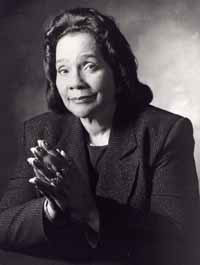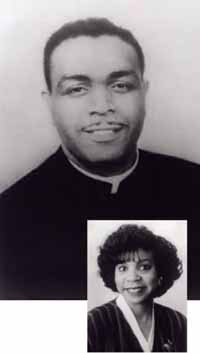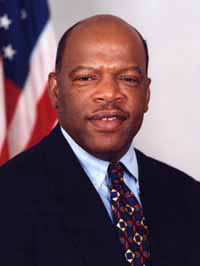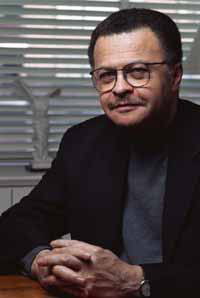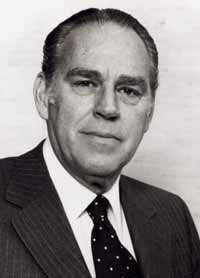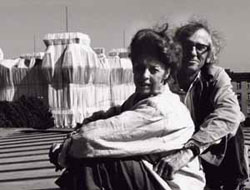Seven Medalists Honored at Convocation Ceremonies
Each year the Teachers College Medal for Distinguished Service is presented at the Master's Convocation to several educators who have made a difference in education.
This year, there is a common thread to those receiving the TC Medal. All those being honored have made a significant contribution to equity in education. They are Coretta Scott King, wife of the Reverend Dr. Martin Luther King, Jr.; The Brown Foundation for Educational Equity, Excellence and Research, which came about as a result of Brown v. The Board of Education, the lawsuit that brought an end to legal segregation in this country; Georgia Congressman John Lewis, one of the "Big Six" leaders of the Civil Rights Movement; and David Levering Lewis, the Martin Luther King Jr. University Professor at Rutgers and author of the two-volume biography of W.E.B. DuBois. The Master's Convocation takes place on Tuesday, May 21, at the Cathedral of St. John the Divine at 4:00p.m.
The Cleveland E. Dodge Medal, which is presented at the doctoral convocation each year, will go to three people this year. They are Harold W. McGraw, Jr., retired President, Chairman and CEO of McGraw-Hill, Inc. and the artists Christo and Jeanne-Claude, some of whose work is on permanent display in the first floor hallway of Grace Dodge Hall. The doctoral convocation will be held on Wednesday, May 22, at the Cathedral of St. John the Divine at 2:30p.m.
Coretta Scott King
Coretta Scott King, though married to the famed civil rights leader Martin Luther King, Jr., has always been a civil rights advocate in her own right. While raising four children, King was active with fundraising and meetings as well as singing in "freedom concerts" to raise money for the Southern Christian Leadership Conference. She was named "Woman of the Year" twice in her lifetime, in 1960, by the Utility Club of New York City, and in 1968 by the National Association of Radio and TV Announcers.
Since the death of her husband, she became a public figure, speaking in her husband's place as well as consulting with many world leaders, including Nelson Mandela. She speaks for women's and children's rights, religious freedom, gay and lesbian rights, the needs of the poor and nuclear disarmament.
In her husband's memory, King founded the Martin Luther King Jr. Center for Nonviolent Social Change and lobbied successfully to establish her husband's birthday as a national holiday. In commemoration of her work and determination in continuing the work for peace and world brotherhood, the American Library Association presents the Coretta Scott King Award to authors and illustrators of African descent whose books promote an understanding and appreciation of the "American Dream."
The Brown Foundation for Educational Equity, Excellence and Research
The late Reverend Oliver Brown is the namesake of the landmark lawsuit, Brown. v. The Board of Education of Topeka, Kan. In 1954, that lawsuit went to the Supreme Court and its decision brought down the practice of segregation in public schools across America. Rev. Brown's daughter, Cheryl Brown Henderson, wanted to commemorate the anniversary and importance of that decision to people of color in the United States and to honor the people involved in that historical case. As co-founder of The Brown Family Foundation, she made those goals its mission.
Through its work, the Brown Foundation has continued the battle for equity and understanding in education. The Foundation reminds the public that the decision marked the end of almost 100 years of legal battles in 1954, but that it was just the beginning of the end of "separate but equal" practices in our country.
The Foundation has gone into the schools to pass on the story and to continue to speak about the need for educational equity. Its supporters have produced a traveling exhibit on the case of Brown v. The Board of Education. An oral history project involving both black and white communities in Topeka and other cities is recording the attitudes of people at the time of the decision.
Its work includes providing scholarships to qualified minority students entering teacher education programs. It establishes programs that emphasize diversity and sponsors performances, lectures, conferences and other programs that encourage a better understanding of different cultures.
Most notably, the Brown Foundation successfully received funding and Presidential support in 1992 for the establishment of a National Park at the site of the Monroe Elementary School, one of the previously segregated schools in Topeka, Kansas. It will mark the family legacy and the historic decision to end segregation in our country.
Congressman John Lewis
John Lewis, a leader in the Civil Rights Movement, attended segregated public schools in Pike County, Alabama. Inspired in his youth by Dr. Martin Luther King, Jr., and by the courage of Rosa Parks, he became committed to protecting human rights through dignity and community building. He organized sit-in demonstrations at segregated lunch counters in Nashville, Tennessee, and as a member of the Freedom Riders, he was beaten by mobs for challenging segregation at interstate bus terminals in the South.
He was also beaten for his participation in the "Bloody Sunday" march to protest barriers that prevented African-Americans from registering to vote and was left unconscious and near death as a result. Despite being arrested more than 40 times, and beaten on many occasions, he maintained a philosophy of nonviolence. He helped form and served as Chairman of the Student Nonviolent Coordinating Committee (SNCC) at the height of the Civil Rights Movement.
Lewis went on to become Director of the Voter Education Project, which helped add nearly 4 million minority voters to the rolls and transformed the nation's political climate. Prior to starting his own political career, Lewis was appointed by President Jimmy Carter to direct the federal volunteer agency ACTION.
Lewis is now in his eighth term as representative to Georgia's Fifth Congressional District. In his work he uses his own life as an example that education must reach beyond the classroom. He's written about his life and philosophy in a book, Walking With the Wind.
David Levering Lewis
David Levering Lewis is the second Martin Luther King, Jr. University Professor of History at Rutgers University who began his life as a historian by pursuing a graduate degree in U.S. History at Columbia University. His reputation as an expert on U.S. civil rights history began after he was asked to write a biography of Dr. Martin Luther King, Jr.
Most well-known of his work is his two-volume biography of one of the most influential African-American civil rights leaders in America, W.E.B. DuBois. The project took Lewis 15 years during which time he conducted hundreds of interviews, traveled to three continents, and sifted through documents, archives and memoirs. For his efforts he received eight book awards, including two Pulitzer Prizes and a MacArthur Foundation "genius grant."
Harold W. McGraw, Jr.
Harold W. McGraw, Jr., will receive the Cleveland E. Dodge Medal for Distinguished Service to Education at the doctoral convocation in honor of his dedication to literacy. McGraw, who spent 49 years with the country's leading textbook publisher, McGraw-Hill, Inc., and served as President, Chairman, and Chief Executive Officer, has founded and supported numerous foundations, councils and centers that promote literacy.
The Business Press Education Foundation, which he founded in 1984, attracts top journalism students to the business press through internship and scholarship programs and provides educational materials to colleges and universities nationwide.
In an effort to give adults opportunities to improve their literacy skills, he created the Business Council for Effective Literacy and he worked hard to ensure the passage of the National Literacy Act. He continues to support the National Institute for Literacy and other literacy efforts throughout the country.
In 1998, he created the Harold W. McGraw, Jr. Center for Teaching and Learning at Princeton University. That Center provides a laboratory for new ideas and advances in teaching strategies and curriculum.
At Teachers College, he has lent his support to the Hechinger Institute on Education and the Media by presenting the Harold McGraw, Jr. Annual Seminar for New Reporters. That seminar makes it possible for new reporters to the education beat to have a better understanding of the educational issues they are covering.
His support of literacy earned him the nation's highest literacy award presented by President George Bush in 1990. McGraw-Hill honored him by creating the Harold W. McGraw, Jr. Prize in celebration of the company's 100th anniversary. The award goes to three people a year who make significant contributions to the advancement of knowledge through education.
Christo and Jeanne-Claude
The artists Christo and Jeanne-Claude, born the same day, June 13, 1935, he in Bulgaria, she in Morocco of French parents, met in Paris in 1958 when Christo was commissioned to paint a portrait of Jeanne-Claude's mother. Since that time they have collaborated on a number of artistic projects, including the wrapping of the Reichstag in Berlin in the summer of 1995. The money for the preparation, completion, maintenance and removal of the artists' projects comes from the sale of Christo's original works of art and allows them total freedom in their projects.
Other large scale, site specific art projects include the surrounding of the Biscayne Bay Islands in Florida and "The Umbrellas" in Japan and California. In Biscayne Bay, 11 islands were surrounded with pink floating fabric after workers for the artists performed a major clean-up of the polluted islands. In Japan and California, umbrellas the size of two-story buildings were placed throughout the open landscape, with 1,340 blue umbrellas in Japan's rice paddies, and 1,760 yellow umbrellas across Southern California's sere hills.
Currently, the artists are working on two projects in the United States. "The Gates" will, if approved, adorn Central Park in New York City with waves of golden yellow fabric, and "Over the River" in Colorado, will involve draping fabric panels across cables above the water of the Arkansas River. All their projects are meant to be viewed for 14 days and enjoyed closely by people interacting with the fabric installations.
In March 2001, Christo and Jeanne-Claude donated 26 hand-signed posters to Teachers College and the TC Student Chapter of the National Art Education Association. An exhibition of the posters is permanently displayed in Grace Dodge Hall.
Published Sunday, May. 19, 2002
